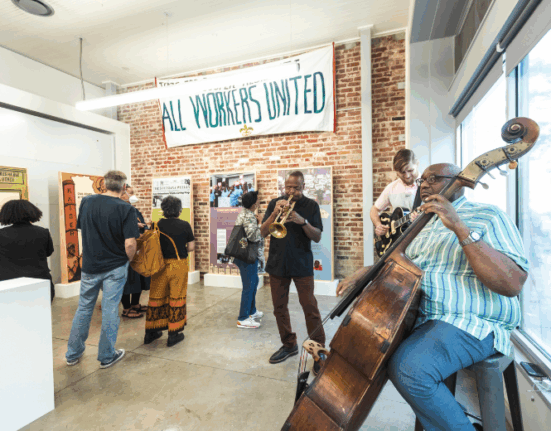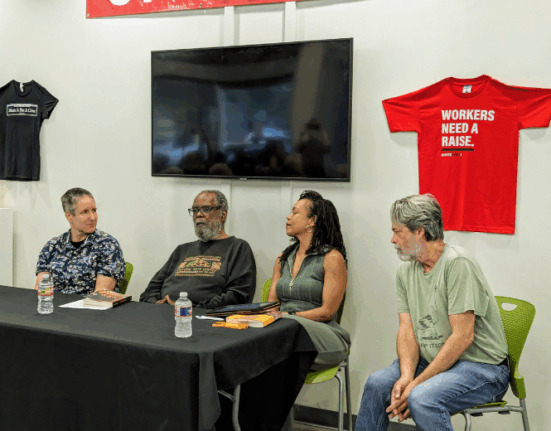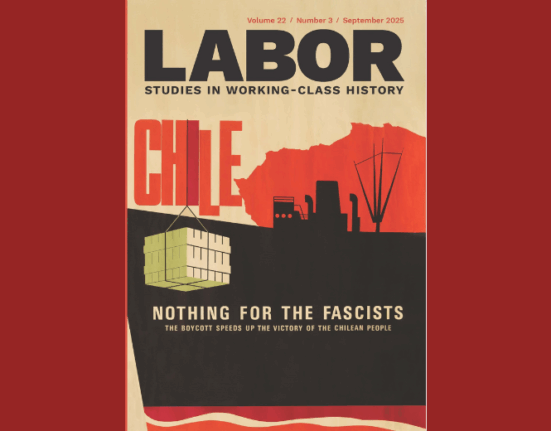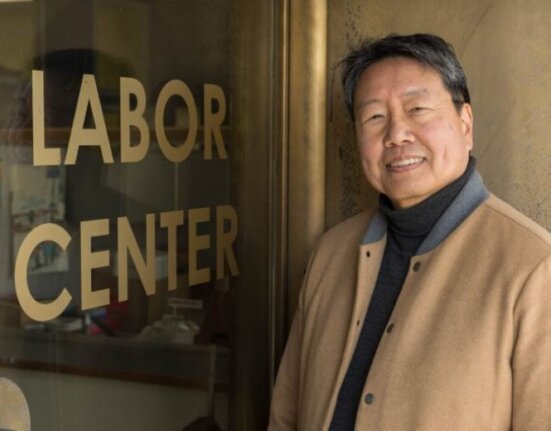July 17, 2018
Dear President Bruce Harreld, Dean Kevin Washburn, and the Iowa Board of Regents:
The Labor and Working-Class History Association (LAWCHA) urges you to reverse the decision to close the University of Iowa Labor Center. LAWCHA brings together hundreds of labor educators, historians, and working-class activists to promote a better understanding of working men and women’s role in the United States and around the world. Today, at a time when workers’ rights are under attack and inequality is on the rise, we need more research, teaching, and community engagement around labor issues, not less.
For 67 years the UI Labor Center has brilliantly generated new research, taught thousands of students, and provided better understanding of labor issues. It was established in response to a call from Governor William Beardsley for greater “knowledge and understanding of labor and industrial relations.” The UI Labor Center is the only Iowa state unit devoted to research and education on labor and workplace issues. Its innovative historical research and teaching is widely known and respected among scholars nationwide. Every year, the center teaches non-credit classes to over 2,000 continuing education students; provides instruction to undergraduate general education courses in labor history and labor studies; coordinates student research, experiential learning, internships and career placement; and conducts interdisciplinary research on a wide range of labor and workplace issues.
The center plays an important role in the field of labor and working-class history. Labor Center staff have served on LAWCHA’s elected board; published in our journal, Labor: Studies in Working-Class History; and contributed to our national initiatives to develop undergraduate and K-12 teaching materials. In the late 1990s, the UI was among the founding institutions of the Midwest Labor and Working-Class History Colloquium, an important forum for graduate education that draws students from around the region and beyond. Center staff have played a key role in bringing together faculty from Midwestern institutions to support the development of emerging scholars.
The center directs the illustrious Iowa Labor History Oral Project (ILHOP), an almost fifty-year-old oral history collaboration between the university, the State Historical Society of Iowa, and the Iowa labor movement. ILHOP has contributed to hundreds of dissertations, articles, and books in labor and working-class history, including several path-breaking studies of workers in the twentieth-century Midwest. Since 2015, ILHOP has collected hundreds of new interviews focused on the years since 1970, providing documentation for critically important and little understood areas of historical inquiry. Indeed, just as the Labor Center’s closure was announced, ILHOP staff had begun work on a major project funded by a $200,000 grant from the National Endowment for the Humanities (NEH) to increase online access to its newly digitized collection of over 1,200 interviews. This is just one indication of the national recognition the Labor Center has received for its research and teaching. But perhaps ILHOP’s most unique aspect and greatest strength is its connection to the communities where interviewees live and work—a connection made possible only through the broad-based work of the center as a whole, and its ongoing educational outreach.
The Labor Center epitomizes the three pillars of the university’s core teaching, research, and outreach missions. Claims to the contrary fly in the face of the university’s own strategic plan, which emphasizes student success, research, and engagement. We are also acutely aware that the proposed closure comes on the heels of attacks on workers’ rights in Iowa and politically motivated assaults on labor education across the United States. In this light, we are particularly concerned that the planned closure allows the UI College of Law to repurpose funds historically allocated to the center.
Closing the UI Labor Center would be a tremendous loss, not only to the 1.6. million workers in Iowa but to teachers and students in Iowa and across the country. We call on you to reverse the decision to close the Labor Center, rescind the furlough notices given to Labor Center employees, and recommit the Labor Center’s existing university funding to Labor Center activities.
Sincerely,
The Labor and Working-Class History Association
LAWCHA Executive Committee
Julie Greene, Professor of History, University of Maryland, LAWCHA President
William P. Jones, Professor of History, University of Minnesota, LAWCHA Vice President
Cecelia Bucki, Professor of History, Fairfield University, LAWCHA National Secretary
Liesl Orenic, Professor of History, Dominican University, LAWCHA Treasurer
James Gregory, Professor of History, University of Washington, LAWCHA Immediate Past President
LAWCHA Past Presidents
Michael Honey, Haley Professor of Humanities, University of Washington, Tacoma
Joe William Trotter, Jr., Giant Eagle Professor of History & Social Justice, Carnegie Mellon University
Nancy MacLean, William H. Chafe Professor of History & Public Policy, Duke University
Jacquelyn Hall, Spruill Professor of History, Emerita, University of North Carolina
Kimberley L. Phillips, Independent Historian
Shelton Stromquist, Emeritus Professor of History, University of Iowa
Alice Kessler-Harris, R. Gordon Hoxie Professor of History, Emerita, Columbia University
Editor of Labor: Studies in Working-Class History
Leon Fink, Distinguished Professor of History, Emeritus, University of Illinois, Chicago
LAWCHA Bard Members
Eric Fure-Slocum, St. Olaf College (PhD, University of Iowa, 2001)
Emily E. LB. Twarog, University of Illinois
Rashauna Johnson, Dartmouth College
Tula Connell, Independent Historian
Colin Davis, University of Alabama at Birmingham
Robyn Muncy, University of Maryland
Jacob Remes, New York University
Anne G. Balay, Haverford College
Jessica Wilkerson, University of Mississippi
Victor I. Silverman, Pomona College
Sonia Hernandez, Texas A&M University
Lisa Phillips, Indiana State University
Priyanka Srivastava, University of Massachusetts at Amherst






